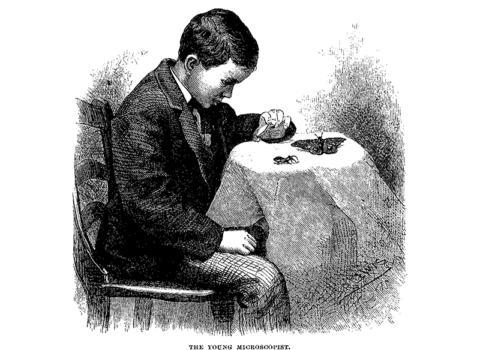American Greatness
“Without conceding that there’s anything at all logical in Donald Trump’s fatuous rhetoric, we can nevertheless acknowledge that America is in fact sick, that in its inmost depths it is guilty of a grievous error.”
Where does it come from, the obsession with American greatness that was once again on display as Donald Trump launched his reelection campaign? With a small modification—“Keep America Great” instead of “Make America Great Again”—Trump reiterated his faith in this vapid concept before a rally of his supporters in Orlando, Florida, on June 18.
First of all, we should ask why “America” is not considered great in the first place: why did the country need to be reassured of its greatness by a real estate crook and reality-television star? Of course, a country isn’t a person—although it’s true that the humanization of a nation has been a time-honored method of shifting the political conversation employed by almost every politician in every period of our history. All the same, one may believe in a “body politic” that possesses a soul, a psychological history, and a spirit. Without conceding that there’s anything at all logical in Donald Trump’s fatuous rhetoric, we can nevertheless acknowledge that America is in fact sick, that in its inmost depths it is guilty of a grievous error. Where does that feeling come from?
The first cause for doubt regarding America’s alleged greatness goes back to slavery, which was legal in the ostensibly “united” states during the first century of their national existence. Devoted as they were to freedom and to the equality of all men, how did the Founding Fathers permit, how could they have permitted, such a hypocrisy? Many books have sought to answer this question, but it’s not my goal here to assess the guilt of Thomas Jefferson and George Washington, two great revolutionaries who owned a great number of slaves. From 1861 to 1865, the United States of America, torn apart by slavery, underwent a bloody war that cost the lives of some 750,000 soldiers. The aftermath of that extraordinary carnage presented the best occasion in our history to redeem the national soul, tainted by having sanctioned the exploitation of people of African origin—4 million living at the beginning of the war.
The assassination of President Lincoln, himself an important soldier in the cause of freedom, spoiled the dream of a society truly based on equal justice for all. Lincoln’s place in the White House was taken by his former vice president, Andrew Johnson, a fierce supporter of the Union, but at the same time a declared enemy of equality for former slaves. Faced with a Congress dominated by a faction then known as the “Radical Republicans,” this accidental president did everything he could to hobble the program of Reconstruction, which not only would have given black males all the privileges of citizenship but could even have confiscated certain portions of the Southern plantations and redistributed them to the new freedmen in the form of small patches of land.
Johnson’s opposition to Reconstruction encouraged the former rebels to take back their dominant status, and anti-black rioters in Memphis and New Orleans together killed about 100 people who had supposedly been liberated by the war and were theoretically protected by the United States Army. The president’s racism and obstruction led the House of Representatives to institute impeachment proceedings against a president for the first time in American history. In her recent book about Johnson, The Impeachers: The Trial of Andrew Johnson and the Dream of a Just Nation, Brenda Wineapple narrates the lamentable outcome of the trial in the Senate, where Johnson was acquitted by a single vote, that of Senator Edmund Ross, who had probably been bribed.
Ross’s reputation has benefited from a hagiography published in 1956 by the young John F. Kennedy, who treated him as a hero and a man of principle for having thwarted the dangerous Jacobins who were attempting to destroy the balance of power between Congress and the executive. For the future president and his ghostwriter, Theodore Sorensen, the worst of the radicals was Thaddeus Stevens of Pennsylvania, a noted abolitionist whom Kennedy describes as “the crippled, fanatical personification of the extremes of the Radical Republican movement, master of the House of Representatives, with a mouth like the thin edge of an ax.”
In fact, Stevens remains one of the most amazing characters in American history, especially as an unwavering supporter of the Founding Fathers’ failed ideals. Eric Foner, author of the leading scholarly book on Reconstruction, reminds us that Clemenceau considered Stevens the “Robespierre” of “the second American Revolution.” That having been said, according to Foner, “Even those who disagreed with [his] policies could not avoid a grudging admiration for the man and his honesty, idealism, and indifference to praise and criticism…” Stevens was not just the friend of the liberated slaves, however; he was, along with his colleague Senator Benjamin Wade, the champion of all the poor, black or not, and among the latter, especially the Chinese and the Irish. His legislative proposal, which would have given each freed slave about forty acres of land, confiscated from within the states of the former Confederacy, scared Northern capitalists too. Karl Marx was strongly impressed by the proposed policy and paraphrased one of Wade’s speeches in Das Kapital. The subtitle of Foner’s book Reconstruction is America’s Unfinished Revolution, 1863-1877, and it’s here that a reader can find the “greatness” lost and distorted by Trump. Reconstruction, subverted by the violence of white Southerners and the weakening of Northern resolve, finally collapsed—and it took nearly a century for a civil rights campaign to once again rise to the fore of the country’s consciousness. But it wasn’t only blacks who suffered the consequences of this failure. The egalitarian dream and the promise of economic justice that were at the heart of Reconstruction failed as well—a failure that reigns among both blacks and whites and is still poisoning us today.



